Some POS systems let retailers monitor sales from a remote computer, even those occurring at multiple locations. "A series of cash registers is interconnected via the Internet, and you can go online and check what was sold at each location at a given time," says Espinosa. "You know your peak hours. If it's Saturday at 12 o'clock and something hasn't been sold in 20 minutes, [the salesperson is] probably not at the cart." And an unmanned RMU is an open invitation to shoplifters.
Runner of ASI advises "showing up at random times to see what's going on," which lets retailers catch employees who have deserted their posts, or those who might be stealing goods or stealing a nap (another open invitation to shoplifters). "I had one employee who should have gotten some kind of an award, because he was balanced on a stool with his feet up on the counter and a book in his lap and he was fully asleep," Espinoza says. "Showing up lets you catch workers who are making time with another cart salesperson or out having a smoke."
Smile for the camera
Another weapon, says Runner, is a security camera, which can be purchased through a security company, or retailers like Costco or Sam's Club. Retailers who go the security-camera route should make it obvious to customers and employees that the location is being monitored, he says. "Display the monitor showing what's being viewed, or put up a sign about the security system," Runner advises, adding: "It will make people think twice." Lisa Taylor, who manages the specialty leasing program at the Mall of America (Bloomington, MN), says some of the mall's 72 RMU tenants have installed security cameras, with some operators hiring a security company to install the systems.
Cart-King International recently launched Security Cart Systems Inc., which integrates security cameras and digital video recorders into the RMU. The system includes four cameras in the canopy of the RMU that record everything going on in and around the location. Retailers using the system can view the locations remotely via computer to see if any shoppers are helping themselves to the merchandise or to catch an employee dipping into the register. Multiple locations can be monitored simultaneously. Everything is recorded with a time-and-date stamp, so "if you nab someone stealing, you have evidence to back it up," says Boyd. These security features add about 25 to 50 percent to the cost of the RMU, he says.
After-hours security
When staffers and shoppers leave for the night, the theft threat doesn't leave with them, says Runner. "At night you're relying on mall security, and their effectiveness varies immeasurably," he says. "Malls have trouble hiring good people like everyone else." He advises retailers to think like a thief and ask themselves: "How would I get to my cart if I had all night to work on it?"
Carts are perhaps the most vulnerable RMUs when it comes to after-hours theft. Boyd says about 50 to 70 percent of carts are closed with a heavy-duty wrap made of canvas, nylon or other material. "It zips down, battens up and can be locked," he says. "It's good for indoor locations with video surveillance and guards. It 's not Fort Knox." Typically, the mall provides the wrap and the cart operator provides the lock. "Malls prefer that tenants have their own locks and keys, so they can't blame mall employees if something is missing," says Kelli Copeland, specialty retail manager for Underground Atlanta. "Get good locks they 're harder to pick," says Runner. And if the ties on the wrap have worn out, he adds, tell the mall manager that they need repair.
A more secure style of cart has collapsible wooden doors that can be locked. The most impenetrable units have a metal frame with metal roll-down gates. "It's designed to be left outside alone in urban locations," says Boyd. The carts in some indoor malls, such as Mall of America and the Shops at
Prudential Center in Boston, are fully locking units and have alarms, too. "Because our arcade is open 24/7 and because we're in the city, we have more security than the average mall," says Karen Cavallo, assistant property manager for Boston Properties, which owns and manages Prudential Center.
Malls like Mall of America, Shops at Prudential Center and Underground Atlanta provide 24-hour security, which includes guards and surveillance cameras. RMU operators also have access to a phone from which they can call security directly. RMU operators "have excellent training about how to detect a theft before or while it is happening," says Taylor. "They are instructed not to chase after the thief, but to call security."
In the end, it's better to prevent a theft than to chase a thief, retailers and security experts agree. Smart retailers take the time before opening day to evaluate each location from a security perspective, think like a thief and shore up vulnerable areas. Retailers who take steps in advance to secure each space and all merchandise will have more secure profits in the long-term.
-
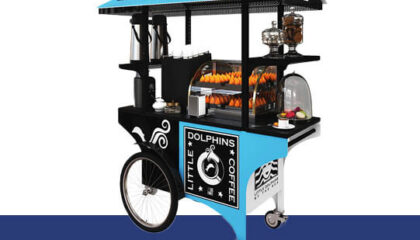 Read more +
September 13, 2024 By kingmike in Cart and Kiosk Articles
Read more +
September 13, 2024 By kingmike in Cart and Kiosk Articles
Simple Guide to Our Top Street Food Carts
-
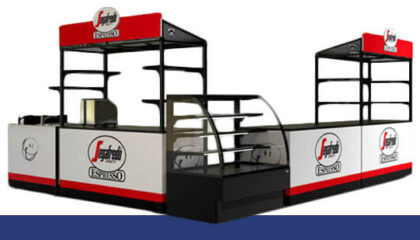 Read more +
June 3, 2024 By kingmike in Cart and Kiosk Articles
Read more +
June 3, 2024 By kingmike in Cart and Kiosk Articles
Buying a food cart in the US – What you need to know
-
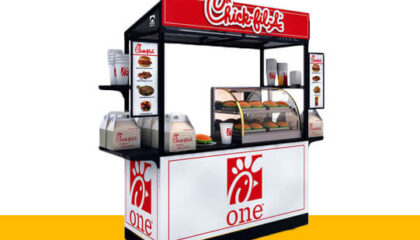 Read more +
May 8, 2024 By Cart King in Cart and Kiosk Articles
Read more +
May 8, 2024 By Cart King in Cart and Kiosk Articles
Food Cart Menu Ideas
-
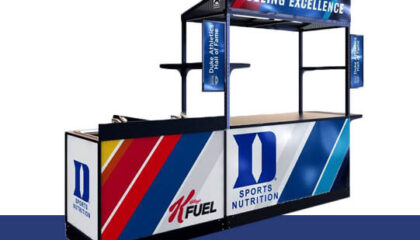 Read more +
May 3, 2024 By Cart King in Cart and Kiosk Articles
Read more +
May 3, 2024 By Cart King in Cart and Kiosk Articles
How to Start a Food Cart Business
-
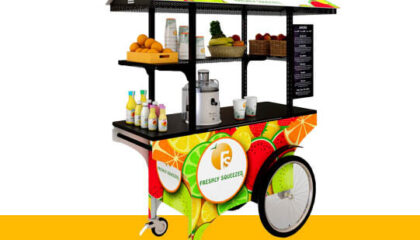 Read more +
April 24, 2024 By Cart King in Cart and Kiosk Articles
Read more +
April 24, 2024 By Cart King in Cart and Kiosk Articles
How to Increase Food Cart Sales: A Complete Guide
-
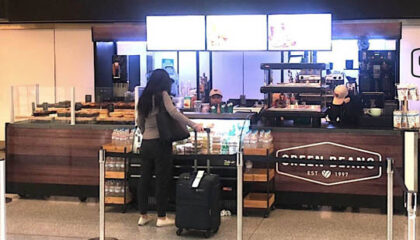 Read more +
April 9, 2024 By Cart King in Cart and Kiosk Articles
Read more +
April 9, 2024 By Cart King in Cart and Kiosk Articles
Food Cart Business Locations
-
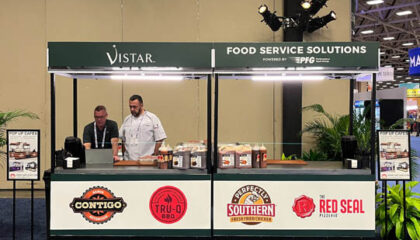 Read more +
By Cart King in Cart and Kiosk Articles
Read more +
By Cart King in Cart and Kiosk Articles
Tips for Designing your Trade Show Kiosk
-
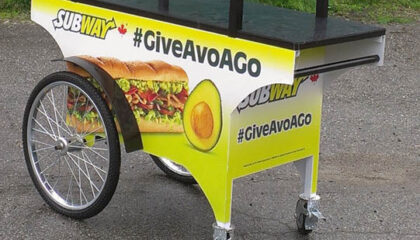 Read more +
April 8, 2024 By Cart King in Cart and Kiosk Articles
Read more +
April 8, 2024 By Cart King in Cart and Kiosk Articles
Social Media Marketing for Your Food Cart Business
-
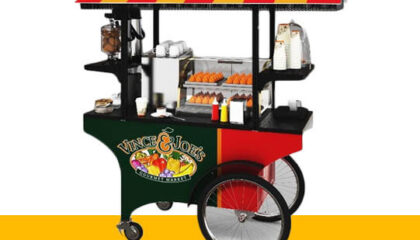 Read more +
April 6, 2024 By Cart King in Cart and Kiosk Articles
Read more +
April 6, 2024 By Cart King in Cart and Kiosk Articles
Push Carts: Some Ideas on Location
-
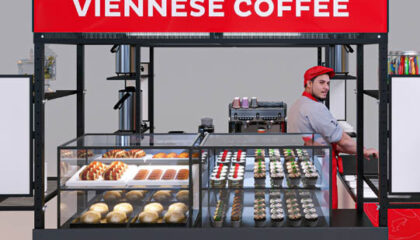 Read more +
April 2, 2024 By Cart King in Cart and Kiosk Articles
Read more +
April 2, 2024 By Cart King in Cart and Kiosk Articles
Coffee Cart Vendor

